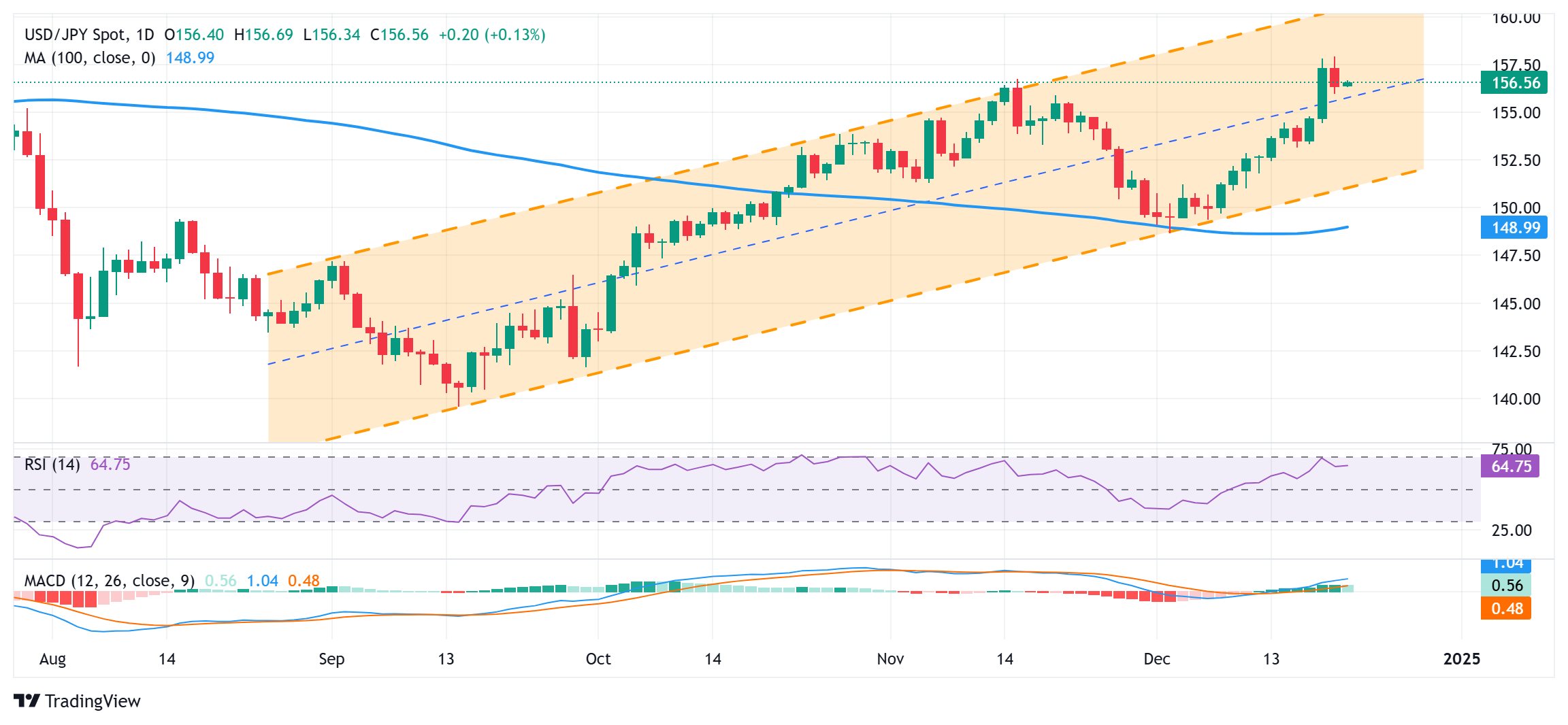Japanese Yen bulls remain on the sidelines; seems vulnerable against USD

- The Japanese Yen struggles to capitalize on Friday’s modest recovery gains against the US Dollar.
- Doubts over BoJ’s rate hike plan, and the widening of the US-Japan yield differential, weigh on the JPY.
- Traders now look to the US Consumer Confidence Index for short-term impetus later this Monday.
The Japanese Yen (JPY) kicks off the new week on a softer note and remains within striking distance of a five-month low touched against its American counterpart on Friday. Doubts over when the Bank of Japan (BoJ) will hike interest rates again turn out to be a key factor weighing on the JPY. Furthermore, the recent widening of the US-Japan yield differential, bolstered by the Federal Reserve's (Fed) hawkish shift, undermines the lower-yielding JPY.
Adding to this, a generally positive tone around the equity markets is seen denting demand for the safe-haven JPY. Meanwhile, strong inflation data released from Japan on Friday left the door open for a potential BoJ rate hike in January or March. This, along with subdued the US Dollar (USD) price action, fails to assist the USD/JPY pair to capitalize on its Asian session uptick to the 156.70 area in the absence of any relevant fundamental catalyst.
Japanese Yen lacks bullish conviction amid BoJ rate hike uncertainty
- The Bank of Japan last week decided to keep the short-term rate target unchanged at the end of the December policy meeting and offered few clues on how soon it could push up borrowing costs.
- Japanese government bond yields dropped to the lowest in a month on Friday in reaction to BoJ Governor Kazuo Ueda's dovish signals and a very cautious tone on further monetary policy tightening.
- The benchmark 10-year US government bond yield rose to its highest level in more than six months last week and the resultant widening of the US-Japan yield differential undermines the Japanese Yen.
- A government report showed on Friday that Japan's National Consumer Price Index (CPI) rose more than expected in November, which bodes well with further BoJ interest rate hikes in early 2025.
- The US Dollar retreated from a two-year high on Friday after the Personal Consumption Expenditure (PCE) Price Index pointed to signs of inflation moderation and lingering challenges for the economy.
- According to a report published by the US Bureau of Economic Analysis (BEA), the PCE Price Index edged higher to 2.4% on a yearly basis in November from 2.3% in the previous month.
- The core gauge, which excludes volatile food and energy prices, rose 2.8% during the reported period, matching October's reading but arriving below the market expectation of 2.9%.
- Additional details of the report revealed that Personal Income grew 0.3% in November, which marked a sharp deceleration relative to the outsized 0.7% increase recorded in October.
- Meanwhile, Consumer Spending, which accounts for more than two-thirds of US economic activity, climbed 0.4% last month after a downwardly revised reading of 0.3% in October.
- Investors now look forward to the release of the Conference Board's US Consumer Confidence Index for short-term trading opportunities on the first day of a holiday-shortened week.
USD/JPY setup suggests that the path of least resistance remains to the upside

From a technical perspective, Friday's low, around the 156.00-155.95 area, now seems to protect the immediate downside. Any further decline might be seen as a buying opportunity near the 155.50 horizontal zone. This next relevant support is pegged near the 155.00 psychological mark, which if broken decisively, might shift the near-term bias in favor of bearish traders and make the USD/JPY pair vulnerable to weaken further.
On the other end, the 157.00 round figure now seems to act as an immediate hurdle ahead of the 157.40-157.45 region and the multi-month peak, around the 157.90 area touched on Friday. Some follow-through buying beyond the 158.00 mark will be seen as a fresh trigger for bullish traders amid positive oscillators on the daily chart. The USD/JPY pair might then climb to the 158.45 intermediate hurdle before aiming to reclaim the 159.00 mark.







